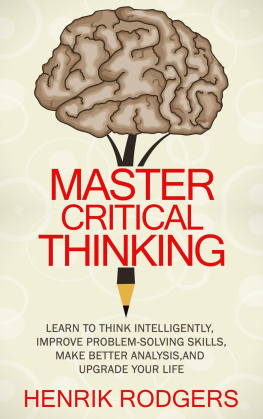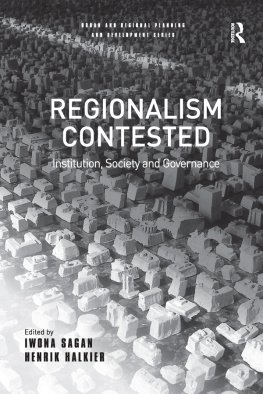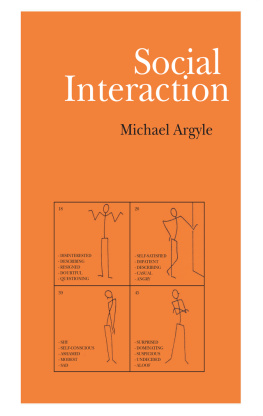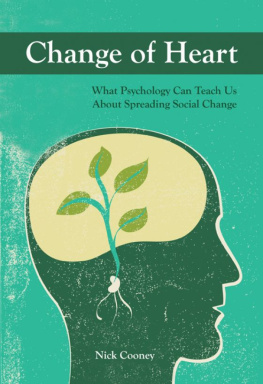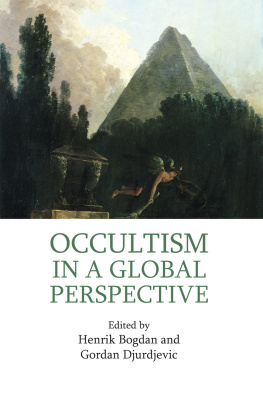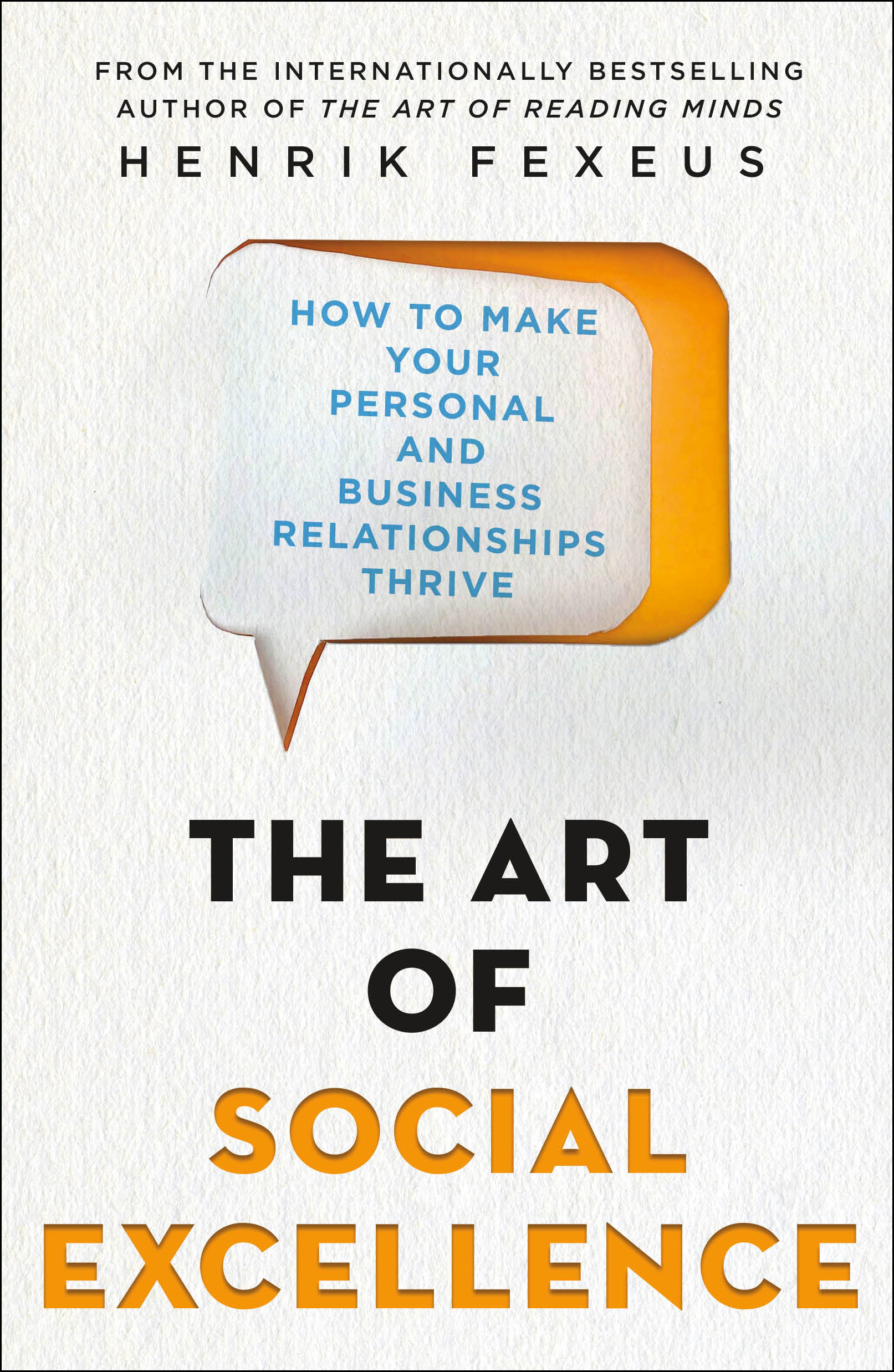The author and publisher have provided this e-book to you for your personal use only. You may not make this e-book publicly available in any way. Copyright infringement is against the law. If you believe the copy of this e-book you are reading infringes on the authors copyright, please notify the publisher at: us.macmillanusa.com/piracy.
The knowledge, it fills me. It is neat.
GIR, Invader Zim
Your future is whatever you make it, so make it a good one.
Dr. Emmett Brown, Back to the Future Part III
Here is where your new life begins.
Im very pleased that you chose to open this book, because you need it. More than you realize. And this is true regardless of how smart you are. Ive written many books on the topic of communication and the peculiar things that go on inside our minds. Those books all originated from my own personal interest and from my desire to help people learn to communicate better and understand more about themselves. In my lectures, I used to say that you have all the time in the world to improve your communication, because you cant get any worse at it. All that matters is that you do it.
It turns out I was wrong.
You dont have all the time in the world. On the contrary, time is short. You see, recent research has revealed two things. On the one hand, the nonverbal, subconscious dimensions of our communication are more important than we ever imagined. New studies have shown that they play decisive roles in seemingly unrelated areas, like investment decisions or salary levels. On the other hand, weve never been worse at communicating than we are right now. And this ability is deteriorating at an alarming pace. Our modern lifestyle is causing us to gradually lose our ability to understand and empathize with our fellow human beings. In a global climate in which refugees on boats no longer make for front-page news but are simply an aspect of our everyday existence; in which millions of people are fleeing across national boundaries; in which political discourse is characterized by a major degree of concern for the future; and in which opinions that are far from humanitarian are steadily winning groundthe fact that we no longer understand each other as well as we need to is bound to have disastrous consequences.
You dont have to be a player on the global stage to notice the effects of this; in fact, theres a decent chance youve already suffered because of it. I suspect that you might be feeling a little annoyed with a number of your coworkers, and you feel that not even your significant other understands you as well as he or she ought to, and that you spend all of your free time watching TV and browsing the internet. Its been some time since you belonged to an association or club, and you rarely have time to see your friends. When people ask how youre doing, you tell them everything is fine. But inside, you feel a gnawing sense of frustration that you have no idea how to deal with.
If at least a third of the previous description applies to you, congratulations! That means you are a member of the amazing group of individuals that we call modern people. You share these feelings with a large portion of the human race.
Things cant go on like this, of course. Thats why Ive decided that you and I are going to do something about it.
A Promise
In this book, I will try to explain what has caused this deterioration of our communication, and Ill give you the tools you need to rectify it. But thats not all. I want to give you the most thorough description of social attentiveness that I can.
I define social excellence as the capability to navigate your social environment in ways that are mutually beneficial and will bring you closer to your own goals, as well as be supportive of, and strengthen your relationships with, others. But since I have no idea where you are on your journey toward enhanced social skills, Im going to start from square one, by taking a look at how you initiate contact with other people (and showing you how to tell if they want to be approached or not), as well as by teaching you how to avoid pointless small talk and make every conversation meaningful. Next, well investigate how to truly listen to others and form unique relationships with them, a topic that has been touched upon in many self-help books, although it is rarely addressed the right way. After that, youll learn how to get others to listen to you when you have something important to say or when there is something you want to change. Well also take a look inside your mind, which happens to be one of the largest obstacles to developing your social excellence. So were going to fix that. Finally, well delve deep into strategies and techniques you can use to prevent challenging situations from arising, and if they do arise despite your efforts, youll learn how to manage them in a way that allows everyone involved to walk away as winners.
You wont learn how to control the minds of others by waving your hand and saying, These arent the droids youre looking for, but I do think this training program will take you as close to becoming a Jedi Master as possible without us getting sued by Disney. And if that reference means nothing to you, at least know that this book will give you the tools you need to handle any kind of social situation. In short, youre going to gain social excellence.
Were going to begin by exploring the skill set that separates us humans from animals.
The Art of (Not) Understanding Others
Human beings are unique in that we are at the same time fundamentally individualistic and fundamentally social. Each one of us is rational and able to make judgments and decisions. But we are also emotional creatures, capable of forming deep bonds with other people. Douglas Adams was wrong: the world was conquered neither by mice nor by dolphins. It wasnt the Red Lectroids, either, although they did make some kind of attempt in the movie The Adventures of Buckaroo Banzai Across the 8th Dimension. The species that conquered the world was us humans. This didnt happen because of our great skill at building primitive tools out of sticks and stones, or because were able to give a double thumbs-up. The single factor that has led us to our present sense of ownership of the planet is our ability to understand one anothers thoughts.
Now, many animals certainly share this ability with us. Only recently, research has shown that even mice appear to have some degree of self-awareness. From there, the step toward forming an awareness of others is not great. And while it is no surprise that primates are the animals who are the closest to us in terms of having a developed understanding of the mental activity of others, were still incredibly advanced compared to them. Weve left them all in the dust by the time were toddlers. In tests, the perceptive abilities of two-year-olds have been found to be equivalent to those of adult chimpanzees. They are equally astute when it comes to noticing where somebody moved the food, which tools they need for a task, and so on. But when it comes to challenges in which understanding the workings of another mind is key, the two-year-olds are way ahead of the chimps. In tasks where you have to follow somebodys gaze to understand where that person has hidden the food, the little humans completely outclass their hairier cousins. In tests performed at the Max Planck Institute in Leipzig by Esther Herrmann and her colleagues, the two-year-olds solved their tasks in 74 percent of the cases, while the chimps only managed a success rate of 36 percent. And unlike the two-year-olds, the chimpanzees had already had a whole lifetime of opportunity to practice this stuff.



